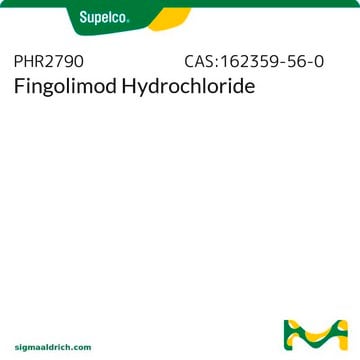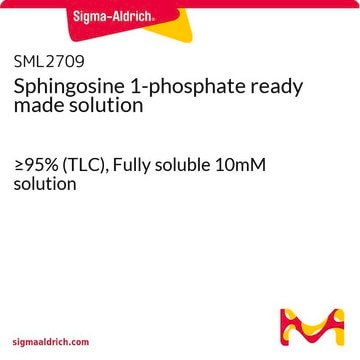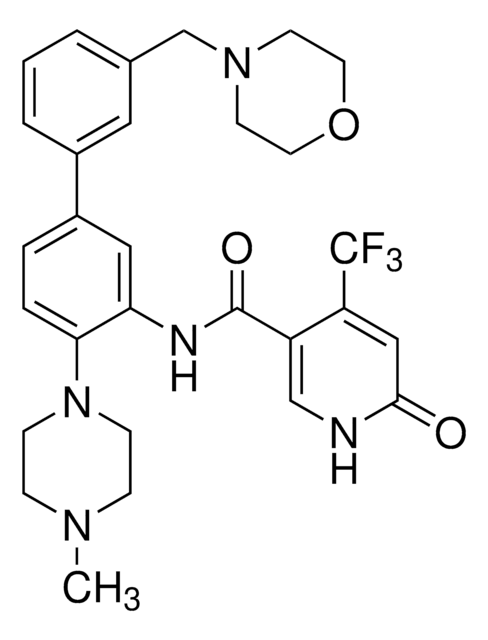S3944
SEW2871
≥98% (HPLC), solid
Sinónimos:
5-[4-Phenyl-5-(trifluoromethyl)-2-thienyl]-3-[3-(trifluoromethyl)phenyl]- 1,2,4-oxadiazole
About This Item
Productos recomendados
assay
≥98% (HPLC)
form
solid
storage condition
protect from light
color
white
mp
94.5-95.3 °C
solubility
DMSO: ≥10 mg/mL
H2O: insoluble
storage temp.
2-8°C
SMILES string
FC(F)(F)c1cccc(c1)-c2noc(n2)-c3cc(-c4ccccc4)c(s3)C(F)(F)F
InChI
1S/C20H10F6N2OS/c21-19(22,23)13-8-4-7-12(9-13)17-27-18(29-28-17)15-10-14(11-5-2-1-3-6-11)16(30-15)20(24,25)26/h1-10H
InChI key
OYMNPJXKQVTQTR-UHFFFAOYSA-N
Gene Information
human ... S1PR1(1901) , S1PR2(9294) , S1PR3(1903) , S1PR4(8698) , S1PR5(53637)
Application
Biochem/physiol Actions
Features and Benefits
Packaging
Storage Class
6.1C - Combustible acute toxic Cat.3 / toxic compounds or compounds which causing chronic effects
wgk_germany
WGK 3
ppe
Eyeshields, Faceshields, Gloves, type P2 (EN 143) respirator cartridges
Certificados de análisis (COA)
Busque Certificados de análisis (COA) introduciendo el número de lote del producto. Los números de lote se encuentran en la etiqueta del producto después de las palabras «Lot» o «Batch»
¿Ya tiene este producto?
Encuentre la documentación para los productos que ha comprado recientemente en la Biblioteca de documentos.
Los clientes también vieron
Nuestro equipo de científicos tiene experiencia en todas las áreas de investigación: Ciencias de la vida, Ciencia de los materiales, Síntesis química, Cromatografía, Analítica y muchas otras.
Póngase en contacto con el Servicio técnico







